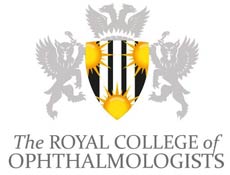Dressings
Immediately after surgery, it is likely that your eye will be covered by a dressing. This usually comprises of Jelonet gel-like gauze and two eye pads. You should gently remove this dressing the morning after surgery (unless told otherwise by Miss Mellington or her team). Once the dressing is removed, you may shower and gently wash the operative site but avoid prolonged soaking of the wound. Wounds should be gently patted dry, never rubbed. Newly healing skin is very delicate and should be treated very carefully.
Once the dressing is removed, you may start administering your post-operative eye drops and ointments as instructed by Miss Mellington and her team.
Reducing swelling
You may then start applying ice packs (ice or frozen peas in a clean sealed bag wrapped in a clean pillow case) to reduce bruising and swelling. Ice packs should be applied intermittently for 10 minutes several times a day for the first 2 days after your operation.
You should refrain from heavy lifting or straining for 2 weeks post-operatively
You should sleep with 2 to 3 pillows to elevate your head slightly for the first 1 to 2 weeks to reduce swelling.
Re-starting medications
You should re-start your anticoagulants (aspirin, warfarin etc.), other usual medications and any herbal supplements if you take them, the day after surgery.
General recovery and resuming normal activities
Your recovery will be dependent upon the type of surgery you have had. However, a few general rules apply:
No make-up and no strenuous exercise or swimming for two weeks
No contact lens wear for at least two weeks, please seek further advice from Miss Mellington
After a fortnight, you should gradually resume your usual activities.
As a general rule, you should avoid flying for one month after your surgery. Thereafter, you should apply the usual advice of keeping well hydrated, wearing compression stockings and doing in-flight exercises. If your GP is in agreement, you may also take aspirin before a flight to reduce the risk of blood clots.
Download the 'Preparing for Surgery' patient information leaflet








